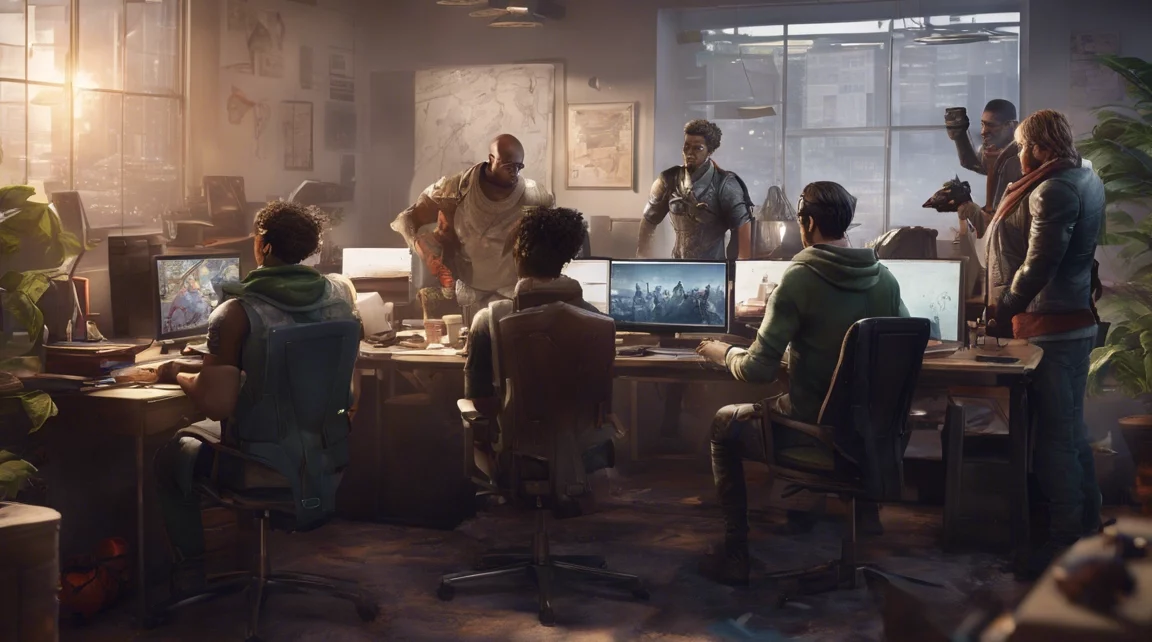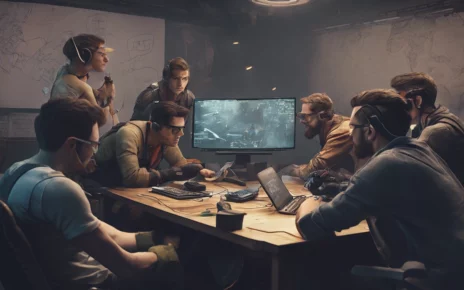Game development is often spotlighted by blockbuster titles and iconic figures like Shigeru Miyamoto and Hideo Kojima. Yet, countless talented individuals work behind the scenes, contributing to the industry without the same level of acclaim. Recognizing these underrated game developers is crucial not just for credit but for understanding the rich tapestry of skills and creativity that fuels the gaming world.
The Importance of Underrated Developers in Gaming
Underrated game developers bring unique perspectives and innovations to the table. While they may lack the fame of their high-profile counterparts, their contributions are vital. These developers push boundaries, experiment with fresh ideas, and often influence mainstream trends. The indie scene, in particular, is a hotbed for such creativity, frequently led by developers who don’t receive the recognition they deserve.
In this article, we’ll shine a light on these undervalued stars of the gaming industry. We’ll explore their backgrounds, notable works, and how they’ve shaped gaming in subtle yet significant ways. If you’re passionate about gaming and eager to discover the unsung heroes behind your favorite titles, you’re in the right place. Exploring these developers’ stories not only enriches our appreciation for their craft but also inspires future creators who dream of making their mark in the gaming world.
Icons in the Shadows: Notable Underrated Developers
When you think of game developers, you might picture the masterminds behind mega-hits. Yet, countless creators forge unforgettable experiences without the spotlight. Here are a few unsung heroes who have made a significant impact on the gaming world:
- Lucas Pope: The genius behind ‘Papers, Please’ and ‘Return of the Obra Dinn,’ Pope’s work exemplifies storytelling and game mechanics. His innovative design challenges players, earning him accolades while remaining relatively obscure compared to bigger names.
- Emily Short: A pioneer in interactive fiction, Short has made extraordinary contributions to narrative design and AI in gaming. Her game, ‘Galatea,’ showcases her ability to create deep, thought-provoking interactions that push the boundaries of storytelling in games.
- Derek Yu: Creator of ‘Spelunky,’ Yu’s work in procedural generation and gameplay mechanics set a new standard for the roguelike genre. ‘Spelunky’ is frequently cited as a source of inspiration by other developers, highlighting Yu’s impact despite his lower profile.
- Lisa Brown: Known for her work on ‘Little Big Planet’ and ‘Skyrim,’ Brown excels in level design, crafting immersive worlds that elevate gameplay. Her contributions behind the scenes help transform good games into unforgettable experiences.
These developers, while not household names, exemplify the depth of talent in the gaming industry. They remind us that innovation often arises from unexpected places. So next time you enjoy an engaging indie title or marvel at a cleverly designed level, consider the creative minds who might not receive the fame but certainly deserve the glory.
Age and Diversity in Game Development
Game development is a field where creativity knows no age limits. Whether young or old, anyone with passion and skills can find a place in this industry. Let’s explore some common questions and myths surrounding age in game development.
The Age Range of Game Developers
While there’s no strict age range, many professionals fall between 25 and 40 years old. However, numerous developers begin their careers much earlier or later, guided by their unique journeys and experiences.
Is 30 Too Old to Start?
Absolutely not! Many successful developers launch their careers later in life. With a wealth of resources like online courses and supportive communities, age shouldn’t be a barrier. Dedication and a willingness to learn are what truly matter.
Young Talent Making Waves
There’s a growing wave of young talent in the industry. For example, 13-year-old Emma Mogus has already created games that draw significant attention. Stories like hers demonstrate that age is no limitation to creativity and technical skill.
Historically, many young creators have made games that reach wide audiences. From coding simple apps to developing complex titles, early exposure to game development can lead to innovative contributions.
Evaluating Game Developers: Spotting Talent
Identifying skilled game developers is a nuanced process. Each developer brings unique skills and perspectives. Here’s how to effectively spot and evaluate talent:
- Portfolio Review: A strong portfolio showcases a range of projects, highlighting a developer’s versatility. Look for completed works with positive feedback, reflecting their capabilities across different stages of development.
- Problem-Solving Skills: Game development is rife with challenges, from debugging to designing intuitive interfaces. Developers who exhibit strong problem-solving abilities often produce more polished and innovative games.
- Communication Skills: Effective communication ensures that ideas are translated into the final product. Developers who can articulate their vision and collaborate well tend to lead successful projects.
- Community Engagement: Utilize platforms like GitHub and game development forums to observe developers in action. Networking at industry events can also provide insights into a developer’s reputation and work ethic.
While financial worth is a consideration, the value a developer brings often extends beyond salary. Developers at large companies like Rockstar Games or Blizzard may top financial lists, but those introducing fresh ideas to the scene are equally valuable.
The Future of Game Development: Youth and Innovation
The future of game development is bright, especially as young talents bring fresh ideas and perspectives. The landscape is evolving rapidly, shaped by a new generation eager to innovate.
Take Benjamin Gantt, for instance. At just 13 years old, he’s already making waves in the development scene. His early start inspires other young aspiring game developers, proving that age is no barrier to creativity and skill.
Game development doesn’t belong exclusively to seasoned professionals. Kids and teenagers are increasingly exploring coding and creating impressive projects. Platforms like Scratch and Unity offer excellent starting points for young minds to realize their game ideas.
Encouraging Young Creators
Encouraging young talent can uncover the next big thing in gaming. Supportive communities, coding camps, and accessible tools make this more feasible than ever. As these young creators grow and learn, they infuse the industry with new ideas that keep it dynamic and exciting.
The future of game development lies in nurturing young talents, creating an environment where they can experiment, learn from failures, and ultimately innovate. By providing them with the tools and platforms to express their creativity, we pave the way for the next generation of unforgettable games and experiences.




